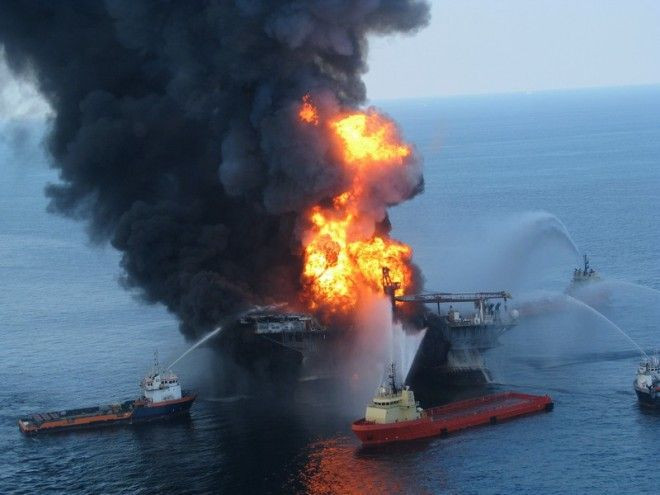Offshore Regulations Following Gulf Spill Are Inadequate, Says Commission Report

In its final progress report, the National Commission on the BP Deepwater Horizon oil spill concluded more must be done to prevent a similar disaster in the Gulf of Mexico.
Published this week, the report, addressed to President Barack Obama, said reforms put in place following the 2010 spill, the worst on record in the U.S., don't go far enough to guarantee human safety and to ensure against a similar incident in the future.
Our message is clear: both government and industry must make dramatic changes to establish the high level of safety in drilling operations on the outer continental shelf that the American public has the right to expect and to demand, the report said. It is now incumbent upon the Congress, the executive branch, and the oil and gas industry to take the necessary steps.
The report said government regulation, industry technology and practices currently in place don't appropriately address the risks involved with drilling hundreds of miles offshore, thousands of feet below the surface of the ocean, in reservoirs with extraordinary pressure.
On April 20, 2010, an explosion on the Deepwater Horizon production platform caused the platform to sink, exposing the wellhead to the Gulf of Mexico.
Eleven workers on the rig died and roughly 5 million barrels of oil gushed into the Gulf in what has become the worst environmental disaster in U.S. history. Before then, the 1989 Exxon Valdez accident in Alaska, which spilled as much as 750,000 barrels of oil into Prince William Sound, was considered the nation's worst environmental disaster.
Since the accident in the Gulf, the federal government has put in place added regulations on offshore drilling, reassessed its designations and safety requirements for offshore wells, and raised the price per acre that companies would have to pay when bidding for future offshore exploration and development opportunities.
Adam Fetcher, Press Secretary for the Department of the Interior, which oversees the bureaus of Ocean Energy Management and Safety and Environmental Enforcement, both of which monitor and regulate the offshore drilling industry, said the reforms put in place are the most comprehensive in U.S. history.
He said the reforms include improvements to oil and natural gas well designs and workplace safety, as well as corporate accountability
Our reforms are helping to ensure that the United States can safely and responsibly expand development of our domestic energy resources, and they are part of this administration's commitment to an all-of-the-above strategy for American energy that includes increased oil and gas production nationwide, while making sure development happens safely and responsibly, Fetcher said.
But the commission report said those reforms must go even further if the government wants to ensure human and environmental safety.
Since the Deepwater Horizon incident, clean up efforts along the country's Gulf Coast continues, and this week, BP said two-thirds of MIssissippi's Coast is clean of tar and oil from the stricken platform, reported the SunHerald.There are reports, however, the spill continues to endanger the area's ecosystems.
But while the commission report calls for more stringent reforms, it also calls on industry players to do more themselves.
Because regulatory oversight alone will not be sufficient to ensure adequate safety, the oil and gas industry will need to take its own, unilateral steps to increase dramatically safety throughout the industry, including self-policing mechanisms that supplement governmental enforcement.
In comments to reporters last week, the American Petroleum Institute, the largest industry trade group, said it was doing just that -- working to improve well design and containment strategies.
As a result of this work, and extensive resources devoted to safety that continue to draw on the best minds from the industry and government, we've established a multi-layer system, with many built-in redundancies to help prevent incidents, to intervene and stop a release that might occur, and to manage and clean up spills, said API director of upstream operations, Erik Milito.
BP could face as much as $4,300 in fines for every barrel spilled if court proceedings in New Orleans find the company was grossly negligent. The U.S. District Court in the Eastern District of Louisiana is still working on determining how liable BP Plc (BP), Transocean Ltd. (RIG), Anadarko Petroleum Corp. (APC) and Halliburton Co. (HAL) are for their roles in the oil spill. Each of the New York Stock Exchange-listed companies have a stake in either the Macondo well or the Deepwater Horizon oil platform.
BP already agreed to pay $7.8 billion as part of a settlement it reached with thousands of land and business owners hurt by the effects of the spill.
© Copyright IBTimes 2024. All rights reserved.




















